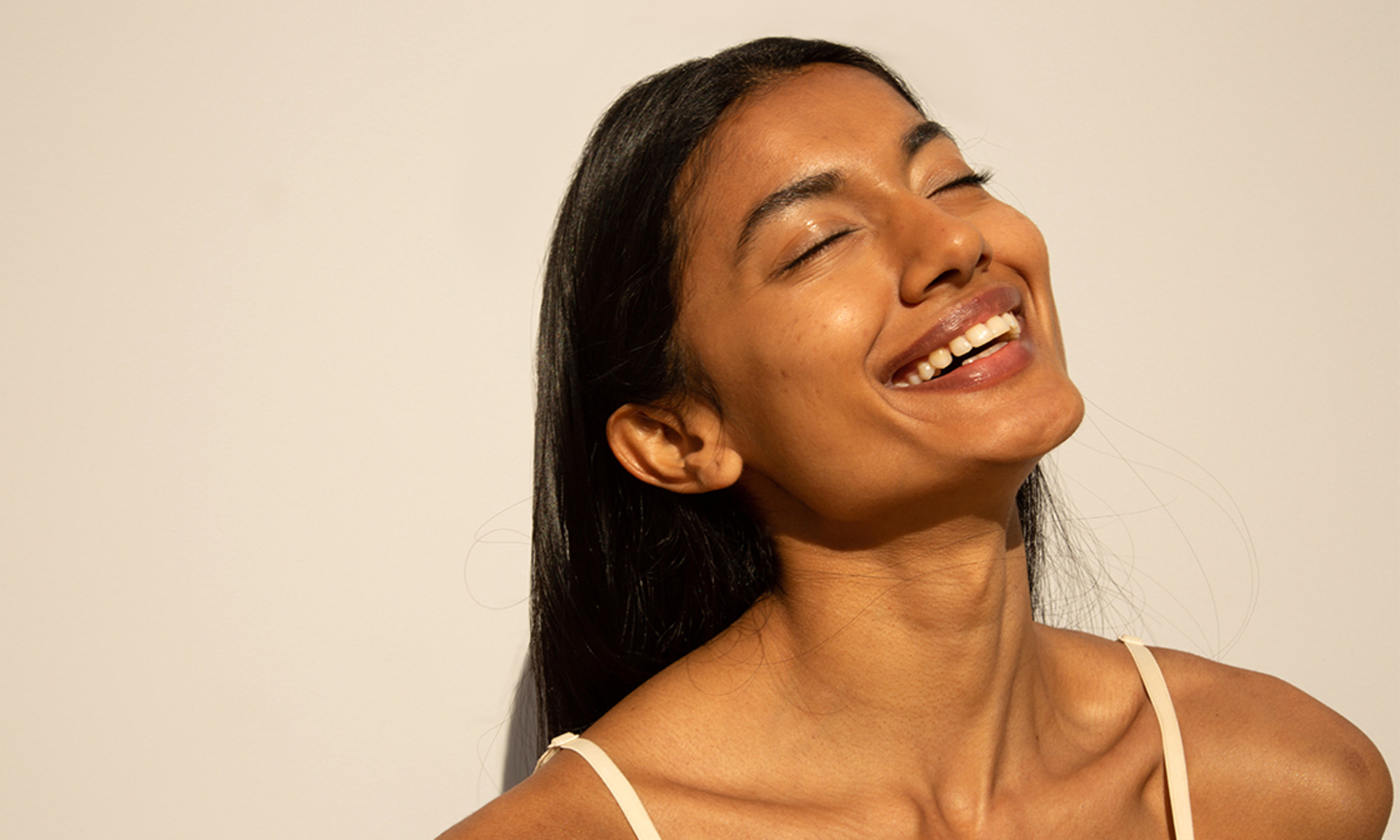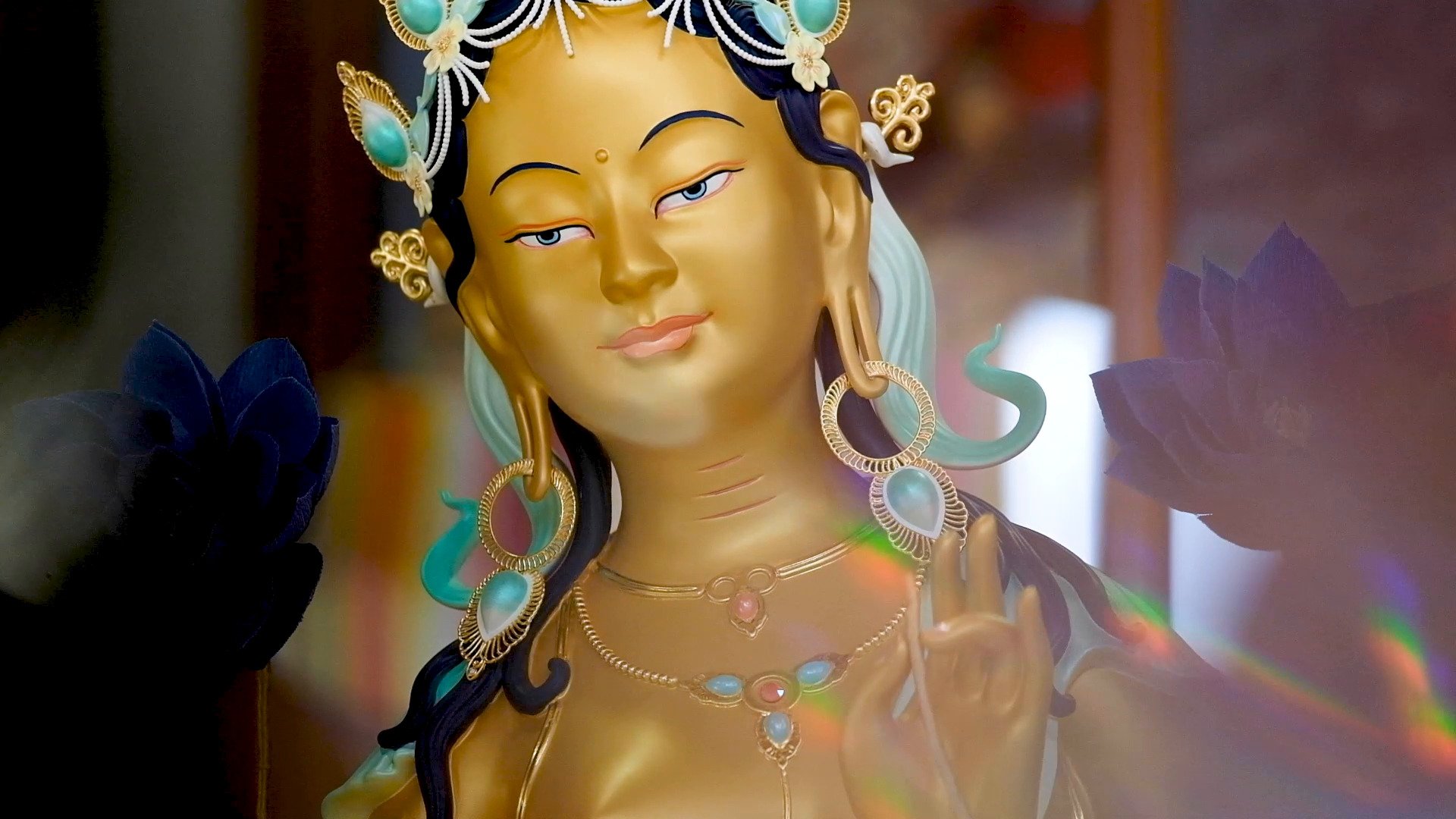Chee Shimizu’s Organic Music
The Tokyo-based DJ, record store owner, and deep listening advocate on the Buddhist threads that connect his vast and varied produce The post Chee Shimizu’s Organic Music appeared first on Tricycle: The Buddhist Review.

Chee Shimizu has shaped Japan’s underground music scene for decades—as a DJ, curator, writer, producer, and record store owner. His cult book Obscure Sound, originally published in 2013, with a revised edition following in 2020, is one of the most important recent record guides to cover more experimental styles of music, ordered by categories such as “organic,” “psychedelic,” “spiritual,” “experimental,” “cosmic,” “meditative,” and “floating.” The revised edition also contains chapters on Japanese ambient and new age, as well as German avant-jazz label ECM.
These days, when he’s not DJing on the international club circuit, showcasing his extensive music collection on his monthly NTS radio show, or hosting his long-running audiophile “Sci-Fi” event in Tokyo, Chee Shimizu is running his record store, Organic Music, in Shimoigusa, a quiet residential area on the western outskirts of the Japanese capital, a twenty-minute train ride from Shinjuku. Shimizu is also a devout Buddhist, whose spiritual practice deeply informs his musical activities. Tricycle author Stephan Kunze caught up with the tastemaker about his journey.
How did you originally get in touch with music? As a teenager, I loved to listen to UK music like rock, new wave, and the Manchester movement. Then I learned about the acid jazz movement in London. At the time, United Future Organization, Kei Kobayashi, and others were leading the club jazz scene [in Tokyo]. I began to visit their events and buy records that they were playing: hard bop, post-bop, soul jazz, and jazz-funk. After that, I became obsessed with dance music, including techno, and started DJing.
Your style of DJing has been described as “free-form.” You say that you do not intend to belong to any scene but feel connected to many scenes. It has been over thirty years since I started DJing. Over the years, I have played many different styles of music. Currently, I mainly do a deep listening style, but if people want me to play dance music, I will do it. Some like my disco sets, others ask for experimental sets. They are people from very different scenes. I do not belong to any particular scene, but I am interacting with people from different scenes, and if my personality matches what they are looking for, I will play music for them.
When you say “deep listening,” are you referring to the practice developed by the late composer Pauline Oliveros? No, I discovered and practiced the concept of [what I call] deep listening through my own musical activities. My practice originated from a regular party at the listening bar SHeLTeR in Hachioji, Tokyo. It’s been more than twenty years since I first DJ’ed there, and the owner, Yoshio Nojima, encouraged me to play music freely. That is how my regular party, “Sci-Fi,” which continues to this day, began. Even back then, SHeLTeR had an environment well-suited for so-called audiophiles. The sound was truly special—an experience unlike anything I had encountered elsewhere. I became deeply engaged in crafting a narrative for the night, transcending genre boundaries, and using a diverse range of music. I did this alongside my dearest friend and the greatest DJ, the late Moroi. Sadly, he passed away from cancer in 2022.
Listening carefully changed something in me.
The term “deep listening” is something we adopted simply because we had no other name for what we were practicing. I was surprised to learn that Pauline Oliveros had already established the concept long ago. Perhaps she, like us, experienced a similar feeling through music. I am intrigued and would like to study her work further.
You’ve curated several compilations of Japanese ambient and experimental music. How did you get into this style long before its resurgence in the streaming age? After I started my record shop, I was a frequent visitor to Europe, buying records as well as DJing. I was sharing music with friends in Europe, and they asked me for interesting music from Japan. Together, with my friend Dubby, my partner in the record shop at the time, I started looking for Japanese music in different genres, among them ambient and experimental music. We went to every single record shop in Tokyo’s suburbs and found a lot of music we didn’t know about. Japanese ambient was still cheap at the time. We relied solely on our intuition and ears.
Your record shop, Organic Music, has existed since 2008. What are some of the key principles in running the store? My first priority is to share the excitement about great music, that deep emotion with others. I named the shop Organic Music because I was fascinated by Don Cherry’s music. I was very fond of his album Brown Rice. The artwork was a quilted piece of art created by his wife, Moki Cherry, with the words ‘Organic Music’ on it. This seemed fitting to describe my musical vision. Just as Cherry traveled the world in the late 1960s and 1970s, absorbing folk music from different countries, interacting with musicians, playing together and communicating through music, I wanted to share a sense of music with people through my record shop and DJing.
The Cherrys were both practitioners of Vajrayana Buddhism. And I know you also have talked about how Buddhism influences your artistry. When did you first get in touch with Buddhism, in your childhood or later? As you may know, in Japan, people customarily engage with Buddhism and Shinto in various aspects of life, and even those without religious faith have opportunities to visit temples and shrines. As a result, people interact with these traditions without necessarily understanding their essence. In my case, I was not strictly raised as a Buddhist, but I have experienced going to temples with my family for memorial services and chanting sutras since I was a child. I only began to develop an interest in Buddhism after becoming an adult.
 Chee Shimizu at his private studio. Image via Chee Shimizu.
Chee Shimizu at his private studio. Image via Chee Shimizu.How did that deeper interest and connection arise? If you are interested in something and pursue it in depth, you may arrive at spiritual questions. In my case, that ‘something’ happened to be music. In my late 20s, I was obsessed with Italo Disco, the Italian dance music of the late 1970s and 1980s. At the time, nobody in Japan listened to such music. [Because of this lack of interest] I didn’t get the chance to DJ in public for a long time. I blamed others—I thought people who didn’t understand my music had no taste. I was young, cocky, and arrogant. When I started DJing in the style of deep listening, I began to think more deeply about music and sound. Listening carefully changed something in me. It was around that time that I became more committed to Buddhist thought. I am still somewhat arrogant, but I am now able to be aware of it. And I have also come to recognize my own weaknesses. I have learned to appreciate the cooperation and help of those around me.
Are you part of any specific Buddhist sect? I do not belong to any specific sect, but my family follows the Soto school, and they are parishioners of the Zenkyu-in Temple in Matsumoto, Nagano, where I grew up. This has been the case at least since my grandparents’ generation.
If you are interested in something and pursue it in depth, you may arrive at spiritual questions. In my case, that ‘something’ happened to be music.
Which Buddhist teachings have enriched your life the most? That nothing in the universe exists in isolation. Each of us is like a cell of the universe. This is something I learned from the late professor Hajime Nakamura, a Japanese scholar of Indian philosophy, Buddhist studies, and comparative thought. Mr. Nakamura also said, “Our connection to the universe is different for each of us, but within it, we all hold something great. If we become aware that we are receiving that greatness, the path we are meant to live will naturally become clear.” I also learned from the writings of the late Japanese philosopher, professor Takeshi Umehara. “Somoku kokudo shikkai jobutsu” means that all things have buddha-nature—not only humans. These teachings form the foundation of my way of thinking. By avoiding a binary oppositional structure and walking the middle path, I strive to objectively grasp the essence of things and maintain a state of inner calm in a world of overwhelming information.
What does your daily practice entail? I listen to people and learn about their way of thinking. And I always keep my back straight and maintain good posture. I make an effort to keep my body in a natural state. The mind and spirit are born from the body.
How does your relationship to Buddhism inform your DJing and music practice? I have learned to contemplate and recognize the existence of music and sound more deeply, and I reflect this learning in my musical activities. The way I think about and treat music and sound has changed. I feel a stronger sense of connection with people. I think I am now able to play music in a more natural state of mind and have a vibrational communion with the audience. I am still learning [though]. This is a quote from the Dhammapada that I also learned from the late professor Hajime Nakamura: “Those who learn little grow old like cattle. Their flesh increases, but their wisdom does not.”
What are some of your current musical interests? Since the pandemic, I have been studying 20th-century Japanese contemporary music and music using traditional Japanese instruments. A new work from my label features music by Kenji Ikegami, a shakuhachi [a flute made from bamboo] player. He is a performer who plays the Jinashi shakuhachi, a type he crafted himself, and his roots trace back to the shakuhachi played by monks of the Fuge sect, a school of Zen Buddhism known as the Komuso. There has long been a fusion of Japanese traditional instruments and Western music, but we are now attempting new ways to connect this past with the present and the future.

 ShanonG
ShanonG 
































